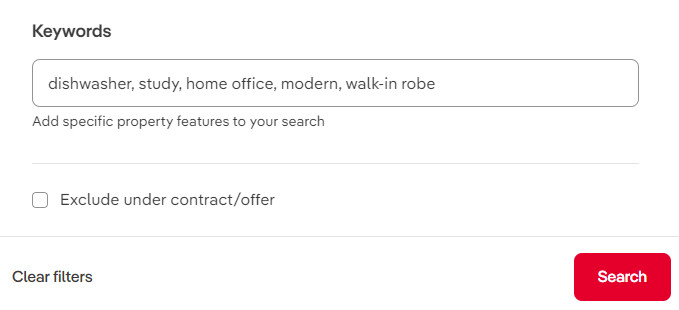ChatGPT and Copywriting – Why Human Copywriters are Still Better Than AI
We’re copywriters.
So, we’re a little bit biased when it comes to ChatGPT. Yes, we strongly believe we can provide more value than AI.
This belief doesn’t come from sticking our heads in the sand. We strive to stay at the forefront of our industry, testing ChatGPT as well as a range of other AI writing tools, assessing for ourselves how they work and the quality of copy they output.
As a result, we’ve experienced first-hand the benefits and the downsides of copywriting with ChatGPT.
Our position? ChatGPT and other AI copywriting tools can be good writing assistants. But AI isn’t ready to replace copywriters just yet.
Who knows what the future will bring?
Below we share our top five reasons why you shouldn’t just rely on ChatGPT to write your copy, some of the ways AI can help you write, and the skills you need to learn to get the most out of the AI writing tools.
Top 5 Reasons You Should Be Cautious About ChatGPT Writing Your Copy
1, Factual Errors
If you’ve been keeping up with the news on ChatGPT, then you’ll know it tends to state totally incorrect facts confidently.
Famously, a lawyer found himself in hot water after relying on fake cases in legal proceedings. Then there’s the scary example where ChatGPT made up false harassment claims against a person, citing completely fake news stories as evidence. And an Australian Mayor might file the first defamation case against ChatGPT because of misinformation it has claimed about him.
The other point is that the data that the free version of ChatGPT was trained on only goes up to September 2021, so depending on what you’re writing about, the information it provides can be outdated.
The takeaway: your reputation could be on the line if you rely on AI to do your copywriting without fact-checking and doing your due diligence. At worst, you could find yourself in hot water for giving people false information.
2, Passable, But Not Great Writing
ChatGPT and other AI tools can write passable, grammatically correct writing. Out of the box, it sounds ok but pretty robotic.
AI writing tends to be:
- Verbose
- Repetitive
- Reliant on cliches
- Lacking in specificity
To get the best out of ChatGPT, you must heavily edit and fact-check the output. Copy editing takes time, but it’s worth it.
Your copy is one way people judge your reputation, so you want it to stand out for all the right reasons.
3, Lack of Empathy
At the very heart of copywriting is empathy.
One person understanding the passions and pain points of another person to relate to them on an intimate level.
Humans can incorporate personal anecdotes, genuine feelings, and real-world experiences into their writing. AI can’t answer the question, ‘How do I want my reader to feel?’ It can’t write from the heart.
4. Privacy Concerns
One way to improve ChatGPT’s responses is to feed it specific data to work with.
But in a world of increasing privacy concerns and data leaks, we have to be very careful about what data we’re giving ChatGPT (and, therefore, everyone else who is using ChatGPT).
Italy has gone so far as to ban ChatGPT because of privacy concerns.
We all need to be cautious about handling sensitive data in our prompts and putting it into the public domain. Here’s just one example from an excellent article by The University of Sydney:
“For instance, an attorney may prompt the tool to review a draft divorce agreement, or a programmer may ask it to check a piece of code. The agreement and code, in addition to the outputted essays, are now part of ChatGPT’s database. This means they can be used to further train the tool, and be included in responses to other people’s prompts.”
When writing ChatGPT prompts, it’s important to think very carefully (or get qualified advice) about the information you provide in your prompts.
You don’t want to compromise your company’s private information (and undermine its competitive advantage) or give away a client’s confidential information, potentially resulting in legal action.
5. Learning Curve
It’s not all doom and gloom – there are benefits to using AI as a writing assistant.
To get the most out of the tools, you need to know and use good ChatGPT copywriting prompts. And that’s a new skill to learn.
If you like learning new skills and have the time, that’s great. But as a busy real estate agent, learning prompt engineering is just another thing on top of a long list of tasks already keeping you busy.
As copywriters, it’s our job to learn prompt engineering, on top of being experts in copywriting, fact-checking, and copy editing (skills that predate AI).
How AI Copywriting Tools Can Help Write Copy
So, after all those warnings, how can AI be used to help with copywriting?
AI is helpful for generating headings. They will need to be edited and tweaked, but if you’re stuck for catchy heading ideas, ChatGPT can help.
AI can help you with alternate ways to say something. Do you have a clunky sentence that doesn’t sound right? Have you written a paragraph that sounds boring, but you’re unsure how to fix it? ChatGPT is like a swipe file on steroids – it’s good at helping you generate ideas, rewriting paragraphs, finding synonyms, and finding different ways to say what’s on your mind.
Again, those paragraphs will need editing, but it’s more efficient than staring at a blank screen or scrolling through your swipe file.
4 Vital Things You Need to Do When Using AI Writing Tools
1. Fact Check
This can’t be over-emphasised: you need to fact-check everything that ChatGPT or other AI writing tools write.
As noted above, ChatGPT is notorious for making up facts. If you ask it to provide sources, it has been known to make up fake sources. Therefore, it’s vital to fact-check all writing independently of AI tools.
2. Always Consider Your Target Audience
AI can provide generalised copy based on averages. But it can’t consider your unique target audience and write directly for them.
When copywriting, you want to write for your audience and consider your unique voice and tone, as well as the unique features of your property. In a world where writing will be increasingly robot-written, stand out by letting your humanity shine through.
3. Edit Your Copy
This brings us to the next point. If you use AI to help you write, it’s important to edit it well.
When editing your copy, you want to edit for the following:
- Clarity
- Conciseness
- Tone and Voice
- Rhythm
- Spelling and grammar
AI is pretty good at spelling and grammar but not so good at understanding the rhetorical devices used in good copywriting.
Again, those paragraphs will need editing, but it’s more efficient than staring at a blank screen or scrolling through your swipe file.
4. Learn Prompt Engineering
To get the best results from ChatGPT, you need the right prompts.
Prompt engineering has quickly gone from being ‘not a thing’ to an in-demand career. There’s an art and a science to writing prompts to get the best results out of AI. Popular YouTubers may claim that you just need to ask ChatGPT to write your copy for you, and BOOM, you have a perfectly polished piece of prose in under 30 seconds, but it doesn’t work like that.
Decent AI copy requires multiple targeted prompts. You’ll need to learn what prompts work, what data to feed ChatGPT, and the order of prompts to get usable copy. All of which takes time to learn.
Time is money when you’re a real estate agent.
Even if you use AI to help you write copy, you will still need to do extensive prompting, copy editing, and fact-checking. Time spent copywriting, with AI or not, could be time spent prospecting and generating a much larger income than the cost of outsourcing your copywriting.
We’re here to help you maintain your professional reputation by producing professional copy that generates interest in your properties and impresses your clients. With over a decade in the business, we can help you get your listings up efficiently by writing polished copy that stands out from the crowd.
Interested? Call or email for more information.





